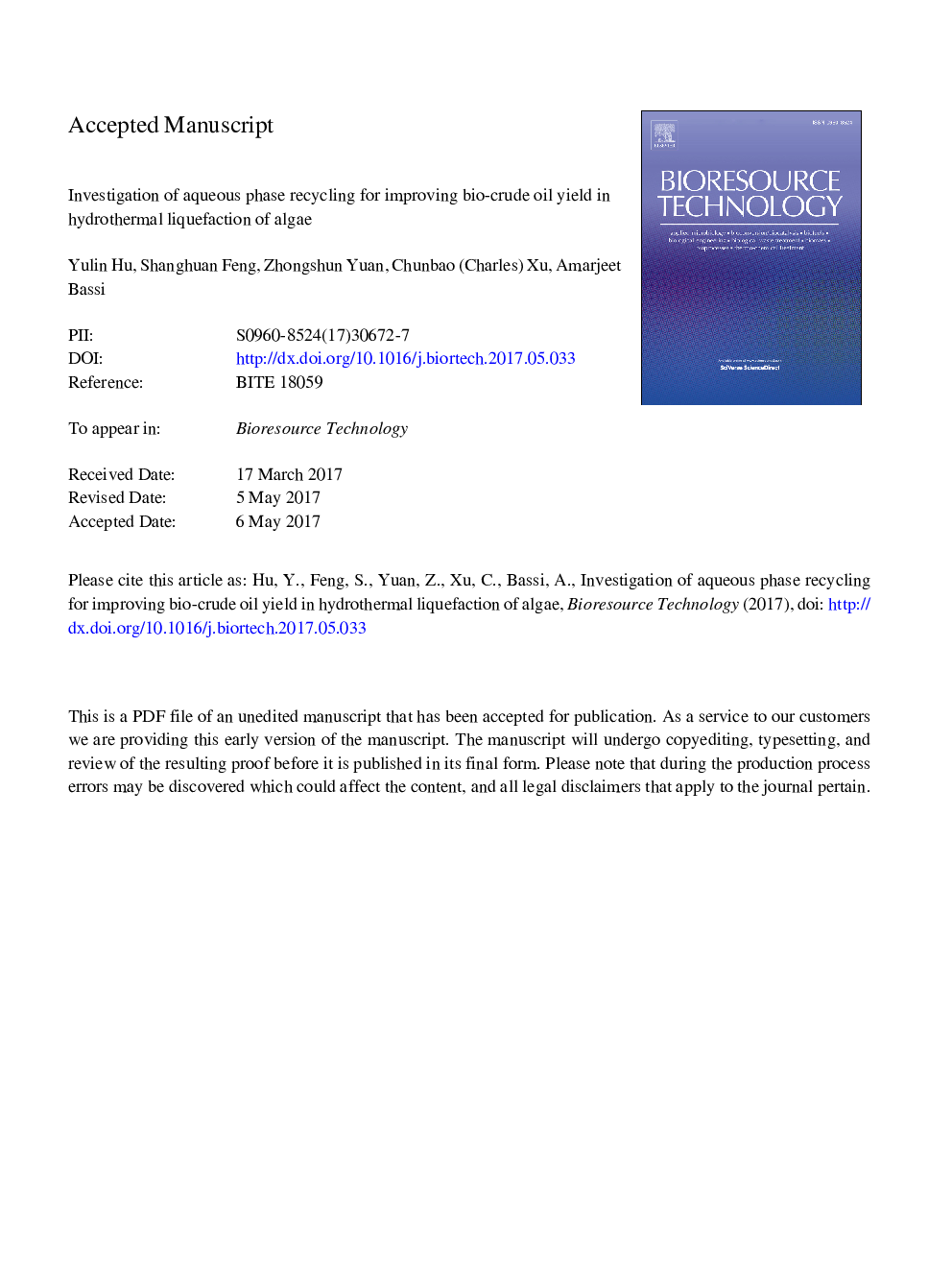| Article ID | Journal | Published Year | Pages | File Type |
|---|---|---|---|---|
| 4997185 | Bioresource Technology | 2017 | 36 Pages |
Abstract
In this study, the aqueous phase obtained from catalytic/non-catalytic hydrothermal liquefaction (HTL) of Chlorella vulgaris was recycled as the reaction medium with an aim to reduce water consumption and increase bio-crude oil yield. Although both Na2CO3 and HCOOH catalysts have been proven to be effective for promoting biomass conversion, the bio-crude oil yield obtained from HTL with Na2CO3 (11.5 wt%) was lower than that obtained from the non-catalytic HTL in pure water at 275 °C for 50 min. While, the HCOOH led to almost the same bio-crude yield from HTL (29.4 wt%). Interestingly, bio-crude oil yield obtained from non-catalytic or catalytic HTL in recycled aqueous phase was much higher than that obtained from HTL in pure water. Recycling aqueous phase obtained from catalytic HTL experiments resulted in a sharp increase in the bio-crude oil yield by 32.6 wt% (Na2CO3-HTL) and 16.1 wt% (HCOOH-HTL), respectively.
Related Topics
Physical Sciences and Engineering
Chemical Engineering
Process Chemistry and Technology
Authors
Yulin Hu, Shanghuan Feng, Zhongshun Yuan, Chunbao (Charles) Xu, Amarjeet Bassi,
